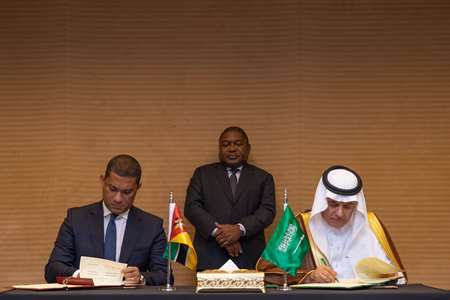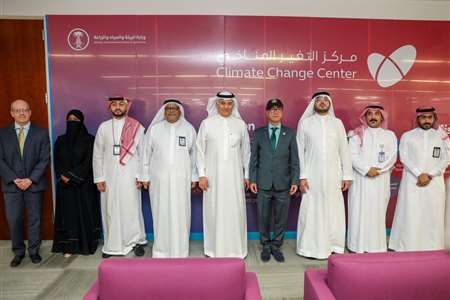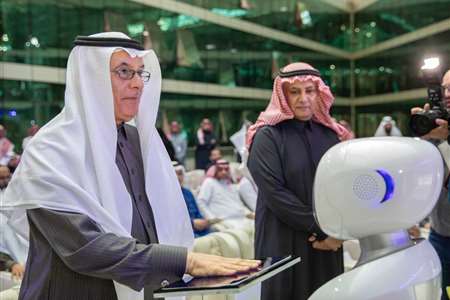The Ministry of Environment provides its logistical services through (11) pilot apiaries to enhance the quality and productivity of bee honey in the Kingdom

The Ministry of Environment provides its logistical services through (11) pilot apiaries to enhance the quality and productivity of bee honey in the Kingdom
The Ministry of Environment, Water and Agriculture provides its logistical and extension services to approximately (8,800) beekeepers, so that technicians and specialists in beekeeping supervise and follow up on (1,800,000) hives, provide extension services and introduce beekeepers to modern methods of beekeeping through (11) pilot apiaries in the regions of the Kingdom. In addition to stations for raising queen bees and producing bee parcels.
The Ministry encourages the production of local honey, taking into account quality standards, spreading the local breed, and transferring modern technologies to beekeepers to improve the quantity and quality of production, reduce costs and increase income while preserving the environment and natural resources, and supporting and encouraging the establishment of cooperative societies for beekeepers, which have so far reached (10) societies. At the level of the Kingdom, in addition to participating in the winter and summer honey festivals implemented in the various regions of the Kingdom, and workshops and instructive lectures in the field of beekeeping are held in conjunction with these festivals.
The initiatives of the Kingdom’s Vision 2030 and the National Transformation Program are concerned with beekeeping and developing honey production by disseminating modern methods of beekeeping, raising the level of production efficiency and improving quality, which leads to achieving higher economic returns and increasing job opportunities for citizens, as the ministry is working through the development initiative project. Beekeeping and honey production are based on a program to improve and develop the local bee breed and preserve it, a program to organize and develop bee pastures and protect them, a program to raise and develop the capabilities of beekeepers, a program to develop extension services in the field of bees and scientific research, and a program to protect bees from damage.
The Ministry of Environment, Water and Agriculture is keen to support beekeepers through financial and logistical initiatives and facilities, starting with granting beekeepers licenses after examining the apiaries in nature, as these licenses enable them to obtain an agricultural loan from the Agricultural Development Fund, and facilitate their movement in various sites suitable for beekeeping. As well as providing extension services and harnessing the central bee laboratory in Riyadh to serve them.
The Ministry of Environment also seeks to preserve the local bee breed by adopting several procedures, including: locating sites for local bees in which imported bees are prohibited, and locating other sites for imported bees.
Bees breed in pastoral areas rich in sources of nectar and pollen, where modern methods of beekeeping are more productive, and beekeepers can harvest larger amounts of honey from modern cells compared to traditional, municipal cells. Modern cells are also characterized by the ease of beekeeper examination of cells.




